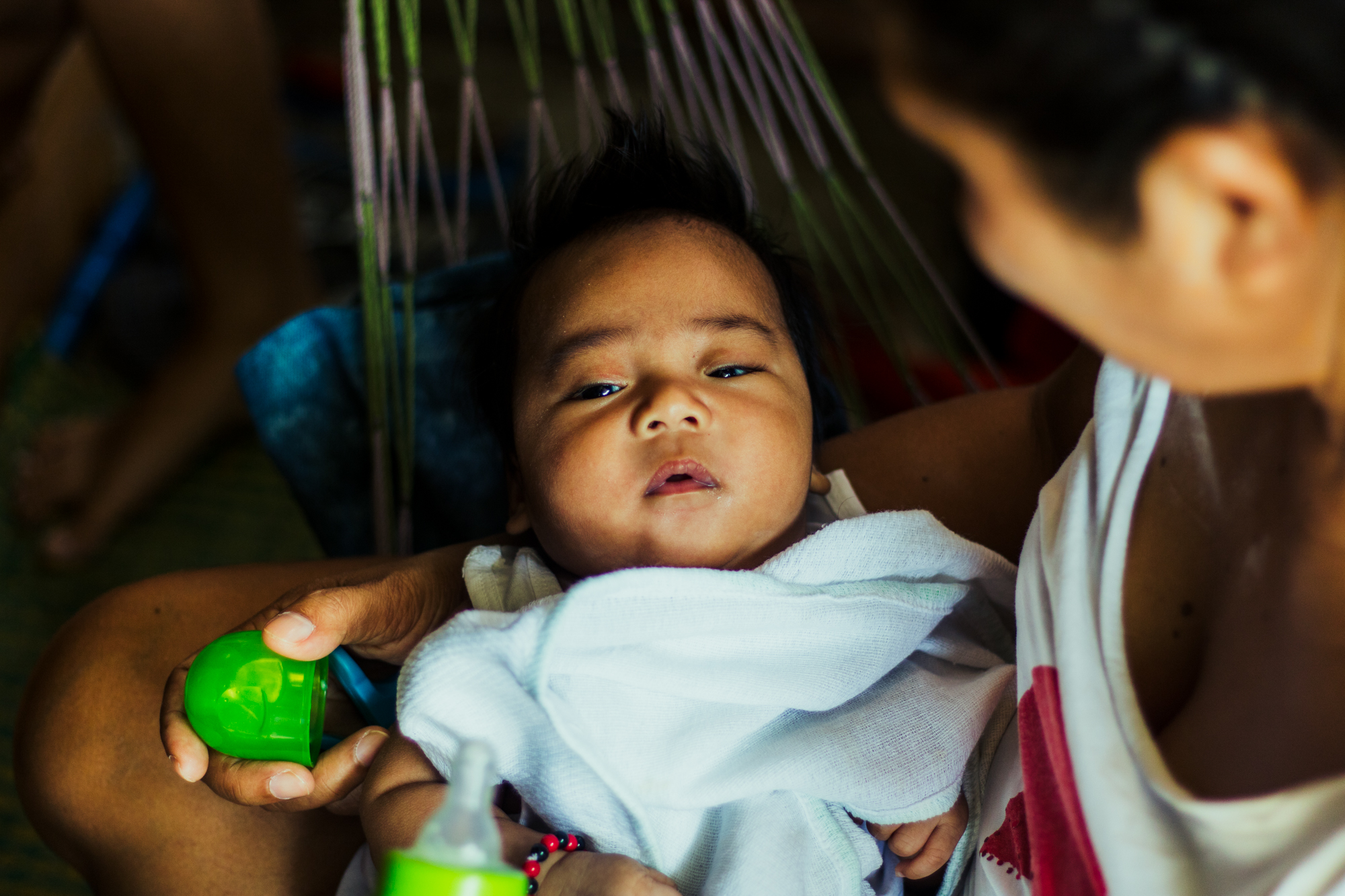The sun shines brightly overhead as we walk to our assigned house. As we get near our destination, I take a moment to survey the neighborhood of Bistekville 1, taking in the plethora of colorful yet tightly-packed townhouses. The Ate accompanying us points to our stop, revealing a slightly frazzled-looking Norma Kamatoy who welcomes us to her home.
‘Small’ is the first word that comes to mind as she ushers us past the threshold of her home. Taking the offered seat, I look around the room curiously. In the corner of the living room hangs a clothesline with clothing set out to dry. To my left, their old television surrounded by piles of memorabilia fill the silence with the sound of this morning’s basketball game. My eyes wander to a rather narrow hallway leading towards the inner parts of their home, registering the simple kitchenette there as well.
Short introductions are made before we move into the actual interview. Ate Norma comes off as timid, if not awkward, at our initial exchange. Not that we could blame her, after all, who were we but strangers borrowing a moment of her time? She starts with a gentle apology at the state of her home, “Magulo ang bahay, ‘daming inaayos.” We are quick to reassure her that it was indeed no problem. Though admittedly it was a bit distracting talking to her when, less than five feet away, a man lay asleep on a mattress. She had just gotten home from her 10pm-to-7am shift as a caregiver, admitting she forgot she was expecting guests.
The Kamatoy family had only just settled into their current home, a result of rough transition brought about by Typhoon Ondoy in 2009. She recalls her decision to move here to Bistekville 1, “Napilitan lumipat eh.”
In the wake of one the of the worst natural disasters to hit the country, Ate Norma and her family found themselves part of the hundred thousands of Filipinos struggling to stay afloat in its aftermath. It only took one calamity and all their belongings were gone; trapped for days atop a tree seeking refuge from the flood that hit the greater metro.
A large part of Ate Norma’s daily struggles stem from a lack of financial stability. It’s not as easy as it was before, she claims; explaining that her old sari-sari store–/pa-loadan wouldn’t be ideal in a village like this. She just can’t afford the risk of lugi, especially not now when money is as tight as it was. Instead, she makes ends meet working as a ‘stay-out’, where she would do odd jobs such as housekeeping and laundering for whoever would take her. It was her acceptance into an agency for caretakers that really seemed to turn the tides of their luck.
During the interview, Ate Norma attends to her grandson, nicknamed Macho by the family. She shares that Macho became the panganay in their little family when her eldest son passed away long before their relocation. Macho’s father, Jhon (the man sprawled out on the mattress from a long shift at work) is the other breadwinner of the household. Because of their situation, Jhon opted to drop out of college and instead help Ate Norma with the household expenses.
Mae Anne is the youngest of Ate Norma’s children, and her mother is determined to get at least one of her children through to college. Worry and frustration is evident as she thinks of the increasingly expensive school fees for the next year. “’Di naman pwede [na] ‘di bilhan ng libro,” Ate Norma states, wearily.
The progressively somber air was suddenly cut by a loud cheer. My attention momentarily shifts to Mae Anne, who watches gleefully as a player on the screen shoots yet another basket for his team.
Our interview seems to take a lighter route after that. Despite the tiresome nature of life, Ate Norma shares the simple joys of the townspeople, even if it’s just for a time: from something as small as touching a passing celebrity’s hand as they settle in the area, to more intimate moments such as past birthday celebrations spent in the solemn beauty of a church. These are the small moments that make hardship all the more bearable for people like them.
Our interview comes to an end I see the true power of a mother’s love in Ate Norma’s soft smile as she cradles Macho. In the tragedy of 2009, Ate Norma found herself scrambling to pick up the pieces of their lives. Now, years later, she continues to move forward, armed with enough hope and drive to create a better future for her and her family.

